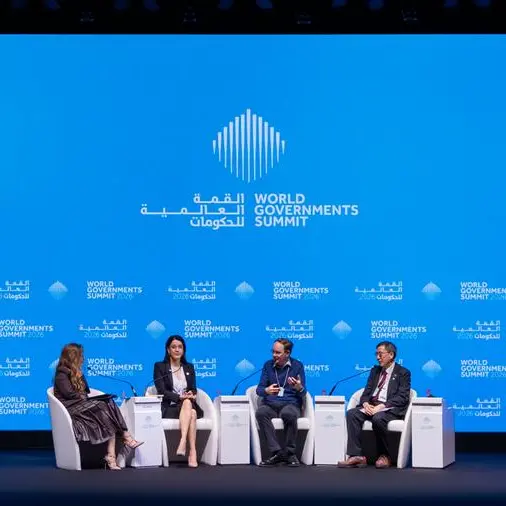PHOTO
Doha: The Institute for Population Health (IPH) at Weill Cornell Medicine-Qatar (WCM-Q) has played a leading role in the creation of the ‘Doha Declaration’ – a unified strategy to promote Lifestyle Medicine to tackle the alarming global surge in non-communicable diseases like type 2 diabetes, obesity, hypertension, , cardiovascular disease, and cancer.
In February, more than 360 Lifestyle Medicine experts and other health professionals gathered at WCM-Q for a symposium, which also featured inaugural summit of the Lifestyle Medicine Global Alliance Leadership Forum. The pinnacle of the forum was marked by 26 prominent leaders in Lifestyle Medicine, hailing from diverse corners of the globe, coming together to endorse and sign the Doha Declaration, a bold and ambitious agreement that establishes a set of guiding principles to advance the integration of evidence-based lifestyle interventions in healthcare systems to reduce the burden of chronic disease for all communities worldwide.
Lifestyle Medicine (LM) employs evidence-based strategies to prevent, treat, and manage chronic diseases like obesity, type 2 diabetes, heart disease, and hypertension while enhancing overall health and wellbeing. These strategies encompass adopting healthy lifestyle habits such as regular physical activity, healthy diet, stress management, restorative sleep, social connections, and abstaining from harmful substances.
Article V of the Declaration states: “We, the representatives of the Lifestyle Medicine Global Alliance Leadership Forum, pledge to work together tirelessly to achieve health and well-being for everyone. Our dedication extends beyond individual well-being to the wellness of communities and the entire global population. We imagine a future where Lifestyle Medicine leads the way in healthcare, facilitating the shift towards a more sustainable and fair health system.”
The LM movement is based upon research which indicates that medical care contributes only around 20 percent to population health outcomes, with the remaining 80 percent being attributable to non-medical factors such as those related to lifestyles and social determinants. The Doha Declaration therefore promotes the systematic and organized integration of Lifestyle Medicine into healthcare systems. It envisages the key method for achieving this integration will be to ensure that all healthcare professionals receive foundational training in Lifestyle Medicine, and that LM approaches will be prescribed as might be indicated. The Doha Declaration also calls for improving the LM competencies of healthcare professionals.
Through the IPH, WCM-Q has positioned itself as a leading regional and global advocate for LM education and adoption of evidence based Lifestyle Medicine approaches.
Dr. Ravinder Mamtani, professor of population health sciences, and vice dean for population health and lifestyle medicine, said: “Non-communicable diseases now pose perhaps the greatest challenge to human health worldwide. Extensive research shows that Lifestyle Medicine approaches are highly effective at reducing the burden of non-communicable diseases, but also that they are underused and poorly integrated into conventional healthcare systems.”
Dr. Mamtani, who is also Vice-Chair of the Advisory Board of the Lifestyle Medicine Global Alliance, added: “With the Doha Declaration, we set out our aims to work together on a global basis to make evidence-based Lifestyle Medicine far more accessible, to help prevent, manage and in some cases reverse chronic diseases”.
Lifestyle Medicine has the potential to offer cost-effective, efficient, sustainable, and equitable health care to individuals worldwide, irrespective of their socioeconomic status.
Dr. Sohaila Cheema, assistant dean for IPH and associate professor of clinical population health sciences said: “Chronic diseases such as type 2 diabetes and obesity are rising steadily, leading to premature mortality, widespread suffering, and poor quality of life. We believe that the most effective way to manage and reverse this concerning trend is through the widespread adoption of proven Lifestyle Medicine approaches.
“The Doha Declaration draws together in one document a strategy for promoting LM worldwide. One of the many key strengths of the LM approach, in our opinion, is that it is firmly based on credible scientific evidence. This will aid physicians empower patients thereby helping them make informed decisions about their health”.
Signatories of the Doha Declaration include Dr. Wayne Dysinger, chair of the Advisory Board of the Lifestyle Medicine Global Alliance; Dr. Ravinder Mamtani, vice dean for population health and lifestyle medicine, Dr. Sohaila Cheema, and Dr. Amit Abraham, assistant director, Institute for Population Health, WCM-Q; Dr. Amy Mechley, chair of the International Board of Lifestyle Medicine; Dr. Padmaja Patel, president-elect of the American College of Lifestyle Medicine, Dr. Stephan Herzog, executive director of the International Board of Lifestyle Medicine; and the leaders of Lifestyle Medicine societies in Australia, Brazil, Chile, Croatia, Hungary, India, Lithuania, Malaysia, Mexico, Nigeria, Pakistan, Philippines, Poland, Portugal, Romania, Saudi Arabia, South Africa, South Korea, Sri Lanka, and the United States.
-Ends-
About Weill Cornell Medicine-Qatar
Weill Cornell Medicine-Qatar is a partnership between Cornell University and Qatar Foundation. It offers a comprehensive six-year medical program leading to the Cornell University M.D. degree with teaching by Cornell and Weill Cornell faculty and by physicians at Hamad Medical Corporation (HMC), Aspetar Orthopedic and Sports Medicine Hospital, the Primary Health Care Corporation, the Feto Maternal Center, and Sidra Medicine, who hold Weill Cornell appointments. Through its biomedical research program, WCM-Q is building a sustainable research community in Qatar while advancing basic science and clinical research. Through its medical college, WCM-Q seeks to provide the finest education possible for medical students, to improve health care both now and for future generations, and to provide high quality health care to the Qatari population.
For more info, please contact:
- Hanan Lakkis
- Associate Director, Media and Publications
- Weill Cornell Medicine - Qatar
- hyl2004@qatar-med.cornell.edu




















